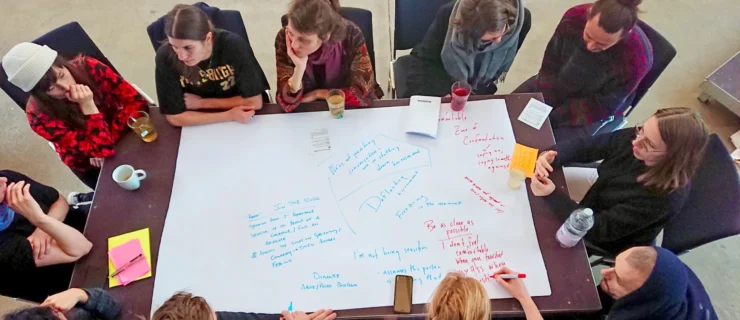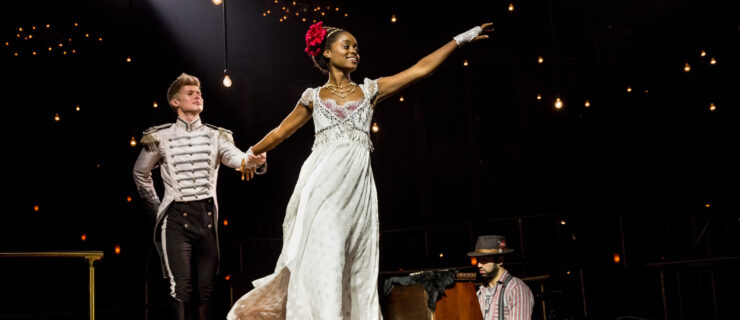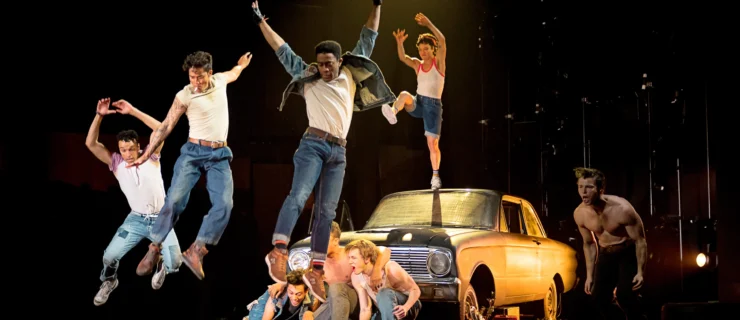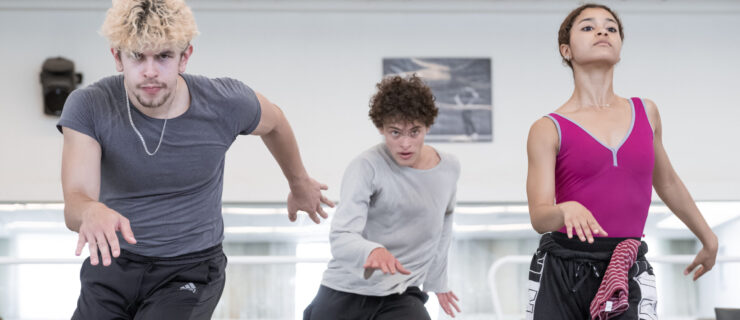Armitage Gone! Dance
Armitage Gone! Dance
Next Wave Festival
Brooklyn Academy of Music
Brooklyn, NY
November 4–7, 2009
Reviewed by Wendy Perron
Megumi Eda and Zoko Zoko. Photo by Julieta Cervantes, Courtesy BAM.
Usually austere in her choice of music and visuals, Karole Armitage opted for pleasure over mystique in Itutu. Singer Maï Lingani set the tone of the evening with her sensuality, both vocally and physically. Her band, Burkina Electric, which is from Burkina Faso in Africa, played irresistibly danceable music to accompany Armitage’s range of African, ballet, and contemporary movement. Also full of pleasure were the vibrant, shifting botanic backdrops by Philip Taaffe.
However, in the first big group section, some of Armitage’s dancers did not have the same sensuality as the singer/dancers of Burkina Electric. When they did the thrusting African movements, they smiled like cheerleaders—perhaps to make up for the lack of comfort with pelvic power. But as Itutu progressed, it gathered greater dimension from the pairing with the hybrid music, Armitage’s choreographic inventiveness, and the intimacy of the quiet moments.
The heart of the piece was a recurring duet between Megumi Eda of Armitage Gone! Dance and Zoko Zoko of the band. These gentle and riveting episodes emerged from the big patterns and celebratory atmosphere of Itutu. Eda was the sky to Zoko’s earth. The first time they almost touched but turned away from each other. The second time they touched, and the third time they entwined—two people from two radically different parts of the (art) world, honoring their cultures through their bodies, gradually getting together.
A fantastically sinuous dancer, Eda was completely herself in these pairings, not trying to be African. Yes, the over-the-top extensions were rampant, as in any Armitage piece, but Eda did other lovely things with her body like floating, scissoring, and wilting. Zoko Zoko was grounded and undulating and seemed to be healing her of something. The third duet was as oddly beautiful as Armitage’s best work.
Other standout dancers were Leonides Arpon, whose go-for-broke energy wiped out all questions of cultural authenticity, and Kristina Bethel-Blunt, who delivered hyper split kicks and African chest beats with equal flair.
Armitage has long been interested in putting disparate cultural elements together, letting them retain their own styles. Surely the fact that Lukas Ligeti, the son of one of her favorite composers Györgi Ligeti, is a member of Burkina Electric, was a deciding factor in choosing this wonderful band of dancing musicians. Ultimately, she allowed the band to guide her to a new place choreographically.



